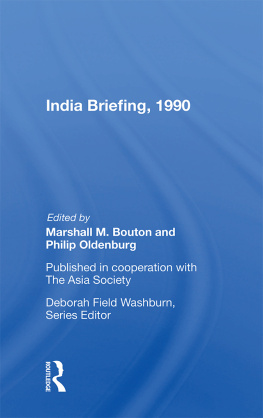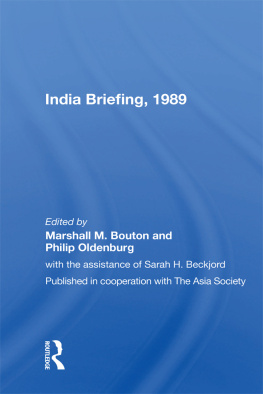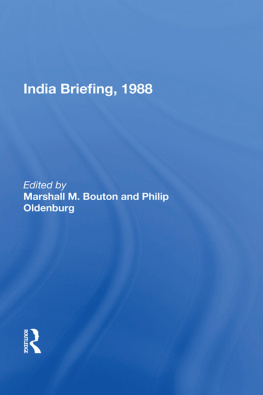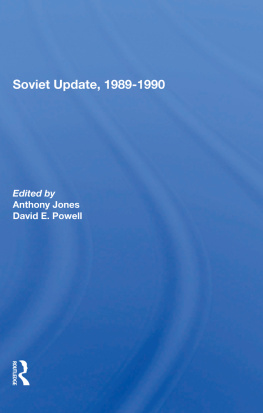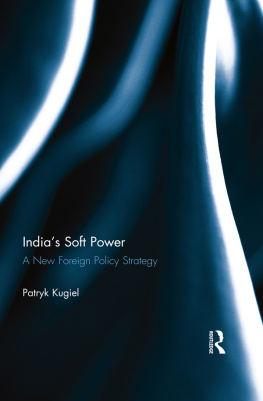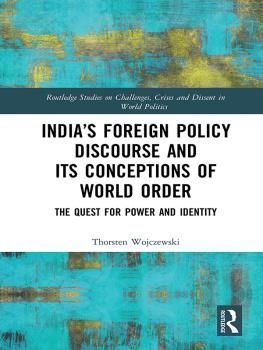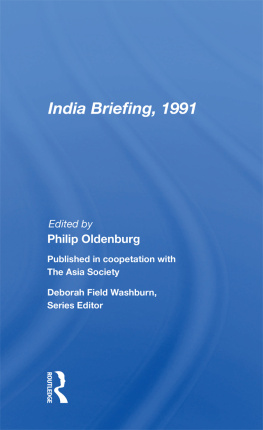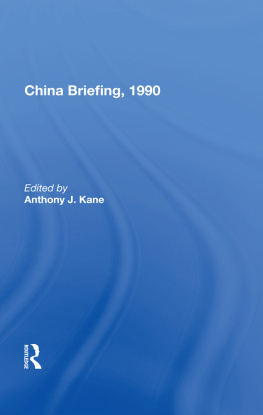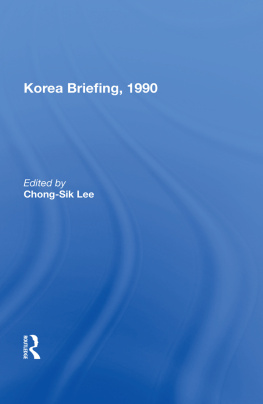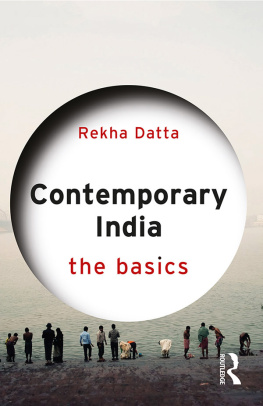India Briefing, 1990
India Briefing, 1990
edited by
Marshall M. Bouton and Philip Oldenburg
Published in cooperation with
The Asia Society
Deborah Field Washburn,
Series Editor
First published 1990 by Westview Press
Published 2018 by Routledge
52 Vanderbilt Avenue, New York, NY 10017
2 Park Square, Milton Park, Abingdon, Oxon OX14 4RN
Routledge is an imprint of the Taylor & Francis Group, an informa business
Copyright 1990 by The Asia Society
All rights reserved. No part of this book may be reprinted or reproduced or utilised in any form or by any electronic, mechanical, or other means, now known or hereafter invented, including photocopying and recording, or in any information storage or retrieval system, without permission in writing from the publishers.
Notice:
Product or corporate names may be trademarks or registered trademarks, and are used only for identification and explanation without intent to infringe.
Library of Congress ISBN: 0894-5136
ISBN 13: 978-0-367-00377-7 (hbk)
Nineteen eighty-nine was a year of transition in India. After a heated campaign that culminated in India's ninth general election in November, Rajiv Gandhi's Congress(I) government stepped down and a government headed by V. P. Singh was installed in December. The new government, which depends upon the support of widely divergent groups in parliament, faces major challenges, among them the rise of communal tensions in Kashmir and Punjab state and an economic growth rate that, after an unprecedented surge in the 1980s, appeared to be tapering off at the end of the decade.
India enters the 1990s committed to decentralizing its politics and administration, enhancing its economic growth, and further improving the lot of its masses in povertyan agenda on which significant progress has already been made. As it faces the future, the country must also find the will and the means to conserve its rich heritage of monuments, art, and artistic traditions.
In foreign relations, the new government has moved to improve its relations with neighboring states. Indian troops were withdrawn from Sri Lanka in March 1990, and revived economic and security agreements with Nepal appear to be in the offing. The dispute with Pakistan over Kashmir has flared again, however, with no solution in sight. India Briefing, 1990 aims to bring to readers an understanding of these and other important developments in Indian affairs.
India Briefing, 1990 is the fourth in a series of annual assessments prepared by the Education and Contemporary Affairs Division of The Asia Society. The division also prepares China Briefing and, this year for the first time, Korea Briefing. All three books are copublished by The Asia Society and Westview Press. The Asia Society is a nonprofit, nonpartisan educational organization dedicated to increasing U.S. understanding of Asia and its importance to the United States and the world at large.
The editors wish to express their appreciation to the authors for their hard work in preparing and revising chapters, and to Susan McEachern and her colleagues at Westview Press for their unflagging support and enthusiasm for the series. Carolyn Kreuger did a fine job of preparing the chronology. Interns Salma Hasan Ali and Puneet Talwar provided excellent research and editorial assistance, and Patricia Farr and Steve Tuemmler were extremely helpful in the editing of particular chapters. The superb editing effort by Asia Society Senior Editor Deborah Field Washburn, with the able assistance of Andrea Sokerka, has made the individual contributions into a book.
Marshall M. Bouton
The Asia Society
Philip Oldenburg
Columbia University
June 1990


1
From Majority to Minority Rule: Making Sense of the New Indian Politics
Atul Kohli
India held its ninth general election in 1989, and it failed to produce a majority government. Although India's premier political party, the Congress(I), remains the single largest group in parliament, its control of 197 of the 545 seats was insufficient to enable it to form a government, Instead, the second-largest group in parliament, the National Front, formed India's first minority government in four decades. Led by V. P. Singh, a former Congress(I) leader, the new government has fewer than 150 seats and rests on the tacit support of two ideologically distinct groups, the avowedly secular but essentially communal and pro-Hindu Bharatiya Janata Party (BJP), which controls 86 seats, and the Left Front, a group of allied communist and left-leaning parties that won more than 50 seats.
How does one explain this political shift from majority to minority rule, and what are the future implications for India of minority government? In this chapter I propose that the national election of 1989 confirmed and finally brought to the surface three long-term trends in Indian politics: the declining hold of the Congress Party; the growing activism of various political groups and their mobilization of support; and the attempts, albeit halting, to forge a national alternative to the Congress(I). A 1989 development representing change rather than continuity was the emergence of a religious party, the pro-Hindu BJP, as a significant political force.
The near future of Indian politics looks uncertain. Good democratic government requires that activism of the citizenry be channeled through coherent institutions. Demands by India's various socioeconomic groups are likely to increase, but it is far from certain that political institutions will be able to accommodate them. In view of recent trends, it is likely that both government and politics will be more unstable in the near future than in the past.
The Long-Term Trends
The election and related political issues will dominate any attempt to make sense of Indian politics in 1989. All other major domestic political developments had to do with sociopolitical conflicts: continuing terrorism in Punjab and growing tension in Kashmir, Hindu-Muslim conflicts in various parts of India, and demonstrations and agitation by various, often privileged, groups against the government's attempts to "reserve" jobs and educational opportunities for selected underprivileged groups (India's version of affirmative action). Before analyzing the elections and other political events of 1989, however, it is important to explore the political background.
The Changing Position of the Congress Party
Although the Congress Party has been India's ruling party for most of the past 40 years, electoral victories since 1967 have not come easily. As the major nationalist party, the party that had led a successful struggle against British colonialism, the Congress was India's "natural" ruling party in the 1950s. During the 1960s, however, opposition to the Congress grew in various parts of India. Like India itself, this opposition was quite diverse: it was led by a regional nationalist party in the southern state of Tamil Nadu; by a religious party, the pro-Sikh Akali Dal, in the Punjab; by various communist parties in West Bengal and Kerala; and by parties resting on the support of rural "backward" castes in the populous heartland state of Uttar Pradesh. (These castes are predominantly composed of landowning family farmers situated between high castes, such as Brahmins, and the lowest, or Scheduled, castes, also known as Untouchables.) The result was that the Congress Party nearly lost its majority in the national election of 1967.




